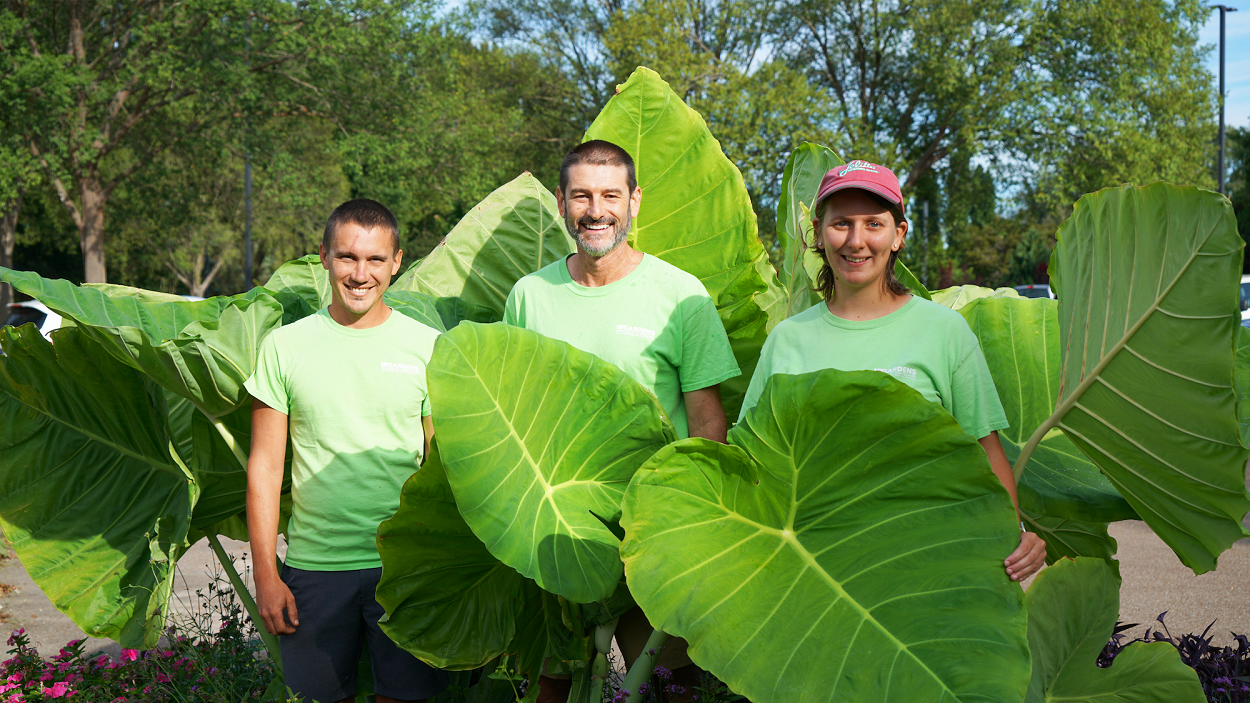
UT Gardens’ April Plant of the Month
Submitted by Jason Reeves, horticulturist at the University of Tennessee Gardens, Jackson
With leaves nearly as big as kiddie swimming pools by late summer, Thailand Giant elephant ear will stop traffic. From a 6-inch plant in May to 8 to 10 feet tall by September, it grows just that fast, with leaves that can get to 5 feet long and 4 to 5 feet wide. To boot, it even blooms! In late summer, it produces white flowers reminiscent of peace-lilies toward the center of the plant.
As with all elephant ears, Colocasia (Leucocasia) gigantea ‘Thailand Giant,’ is easy to grow. For maximum growth, plant in good garden soil in full sun to light shade. It performs well in a large container but is not likely to reach its full potential. The large leaves can become tattered in strong wind, so protection from gusty conditions is recommended.
As a specimen in the ground or large container, it cannot be ignored. Thailand Giant is fun growing near a pool or patio where you can use the large leaves for shade. With the bold look of these big tropical leaves, you can create your own summer oasis.
It is winter hardy in zone 8 but often can be overwintered in zone 7 in the garden with enough protection. It can be overwintered indoors or in a semi-dormant state in a basement/cellar, in the crawl space under your home, or in an enclosed garage, so long as it does not freeze. Be careful not to over water it in the winter.
Plant Delights Nursery in Raleigh, North Carolina, introduced this huge strain of elephant ear from seed collected from plants growing wild in Thailand in the mid-2000’s.
Both the UT Gardens locations in Knoxville and Jackson grow them each year from seed collected from their plants. They can be tricky to grow from seed even in a greenhouse, therefore, the reason they are uncommon in the trade. All three UT Garden locations will have them at their spring plant sale and growing in the gardens this summer.
The UT Gardens includes plant collections located in Knoxville, Crossville and Jackson, Tennessee. Designated as the official botanical garden for the state of Tennessee, the UT Gardens are part of the UT Institute of Agriculture. The Gardens’ mission is to foster appreciation, education and stewardship of plants through garden displays, educational programs and research trials. The Gardens are open during all seasons and free to the public.